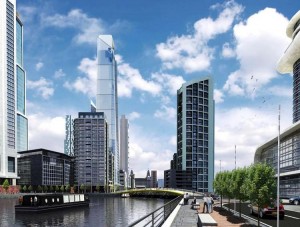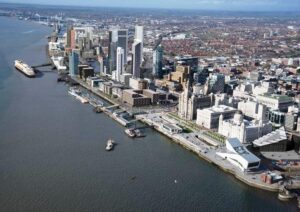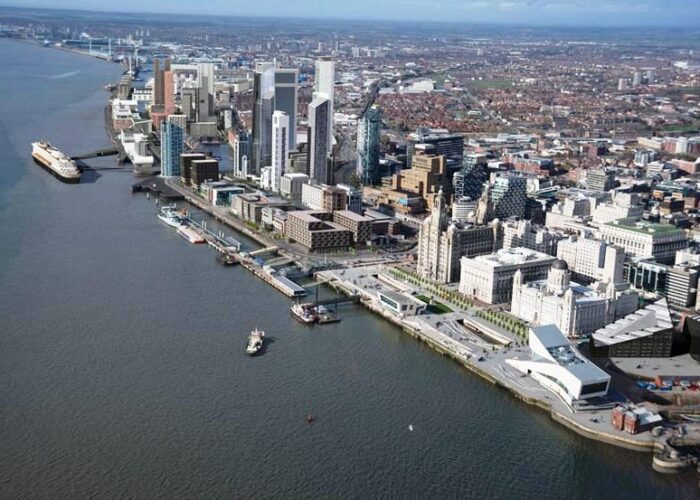
City planners have once again given the go-ahead to the controversial £5.5bn Liverpool Waters scheme, despite opposition by heritage campaigners.
Liverpool City Council voted unanimously in favour of the project in March, but officials have since been locked in complex negotiations with Peel Holdings, who will be developing the dockland site, and defending its decision after critics claimed the city would lose its UNESCO World Heritage Site status as a consequence.
Liverpool’s planning committee has now re-approved the new conservation and technical parts of the application.
The current scheme will mean regenerating the Central Docks to build 9,000 apartments, offices, hotels, bars and a cruise terminal. The project also includes plans for a 55-storey tower.
Peel Holdings has faced objections ever since its first proposals in 2007, with English Heritage arguing that the plan “largely fails to harness what is special about this important historic site”.
A spokesman for the organisation said: “English Heritage fully supports the potential of regenerating the Central Docks and the huge benefits this could bring. We do not believe that it is necessary for the benefits of Liverpool Waters, as proposed, to come at the expense of the Outstanding Universal Value of the World Heritage Site.”
English Heritage added that it had “hoped that the detailed design would be managed with appropriate planning conditions to mitigate the harm”, but claims this is still yet to be met by the revised plans.

Council committee member Cllr Hazel Williams disagrees with the objections made, instead calling the development a “superb idea which offers regeneration and jobs in Liverpool”.
She told JMU Journalism: “This scheme will take Liverpool even further as a city. It will only add to the development of the city where people want to live, work, play and visit. It’s a fact that Liverpool is thriving and this scheme will only help to continue that.”
The proposal is now to go before the Communities and Local Government secretary Eric Pickles to decide whether a public inquiry is necessary.

